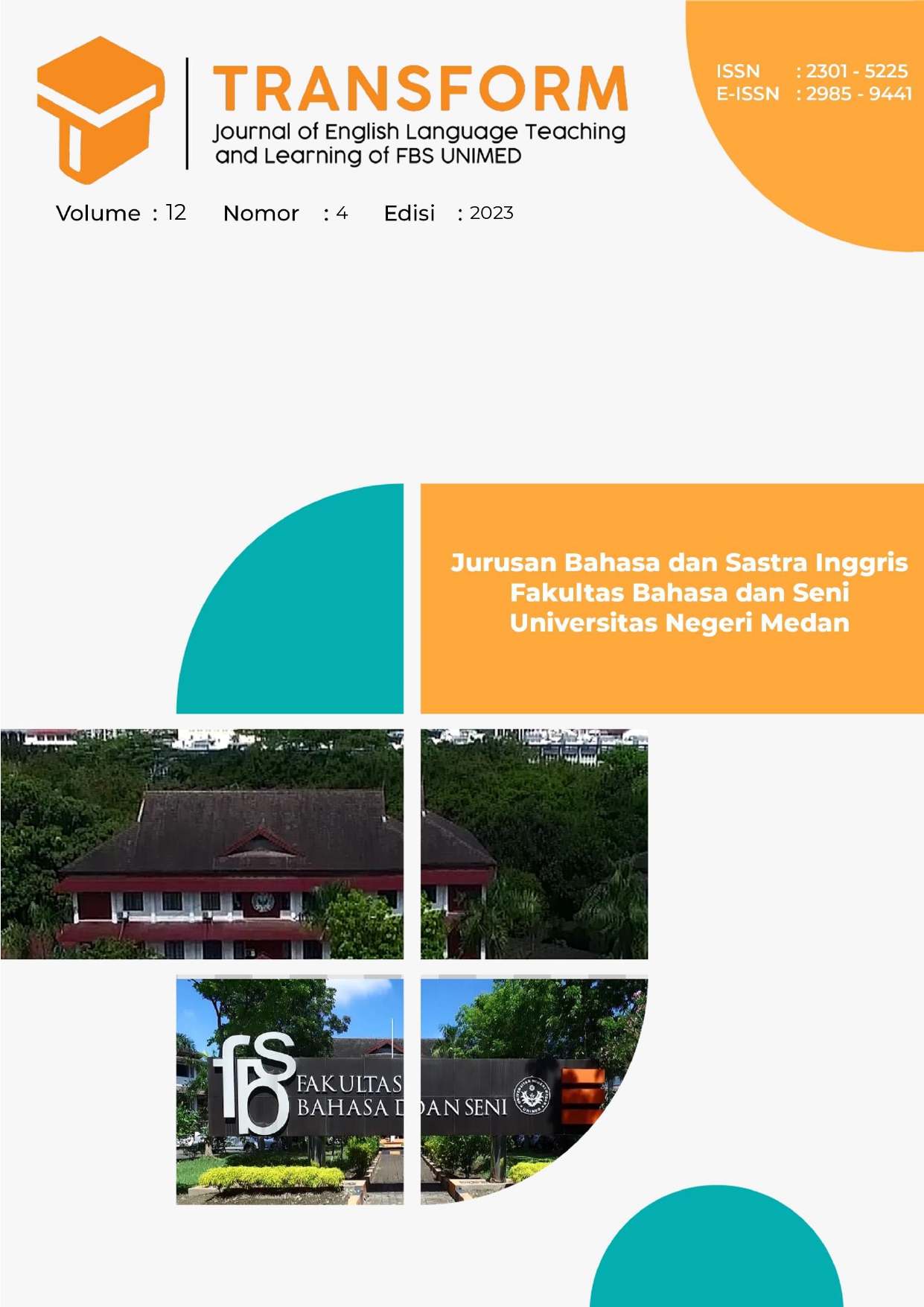Psychological Conflict Of The Main Character Portrayed In Sam Levinson™s Movie Series: Euphoria
DOI:
https://doi.org/10.24114/tj.v12i4.57583Keywords:
Psychological conflicts, Id, Ego, Superego, EuphoriaAbstract
This study is concerned with Psychological conflicts experienced by the main character in Sam Levinson's movie series "Euphoria." This study used descriptive qualitative to explore the kinds of psychological conflicts experienced by the main character in Euphoria. This study used Sigmund Freud™s (1923) psychoanalysis theory to examined the data in this study. The results of the data were found that (1) There were three kinds of psychological conflict experienced by the main character, namely Id, Ego, and Superego. (2) There were three factors that caused psychological conflict, namely losing the father, mis understanding, and uncomfortable situations. (3) There were four ways how the main character overcame the psychological conflict such as, sublimation, repression, and denial. In conclusion, the dominant psychological conflict experienced by the main character is the Id aspect.Downloads
Published
2024-04-25
Issue
Section
Articles
License
Copyright (c) 2024 Gusnida Rezeky Sinaga, Amrin Saragih

This work is licensed under a Creative Commons Attribution-ShareAlike 4.0 International License.
Authors who publish with this journal agree with the following terms:
- Authors retain copyright and grant the journal right of first publication with the work simultaneously licensed under a Creative Commons Attribution License that allows others to share the work with an acknowledgment of the work's authorship and initial publication in this journal.
- Authors are able to enter into separate, additional contractual arrangements for the non-exclusive distribution of the journal's published version of the work (e.g., post it to an institutional repository or publish it in a book), with an acknowledgment of its initial publication in this journal.
- Authors are permitted and encouraged to post their work online (e.g., in institutional repositories or on their website) prior to and during the submission process, as it can lead to productive exchanges, as well as earlier and greater citation of published work (See The Effect of Open Access).
- This work is licensed under a Creative Commons Attribution-ShareAlike 4.0 International License.

This work is licensed under a Creative Commons Attribution-NonCommercial-ShareAlike 4.0 International License.



